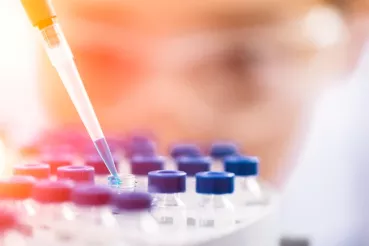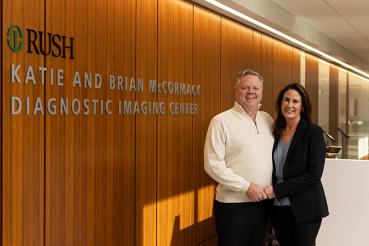Nearly 1 in 5 Americans endure chronic pain, and they have a greater chance of developing it than other chronic conditions such as hypertension, diabetes and depression.
A study published in May 2023 in JAMA Network Open reported that 6 in 100 adults who had no prior pain developed chronic pain, while 1 in 100 developed pain so debilitating it significantly impacted their quality of life.
Chronic pain is one of the costliest health problems in the U.S., causing patients to miss time and lose income from work. Even a decade ago, the National Institutes of Health estimated that the cost of chronic pain to the U.S. economy was somewhere between $560 billion to $635 billion per year due to direct health care costs, days of work missed, hours of work missed and lower wages. In fact, the costs associated with chronic pain surpassed those associated with heart disease and cancer care treatments.
Clinical challenges
The pathophysiological mechanisms that give rise to chronic pain are not well understood. One of the treatment approaches for chronic pain has been the use of opioids. But patients can become physically and psychologically dependent on opioids, as the opioid epidemic illustrated.
“After the fallout from the opioid epidemic, there was a call to figure out how we can prevent chronic pain, so we don’t wind up in the same predicament with addiction,” says Asokumar Buvanendran, MD, interim chair of the Department of Anesthesiology at RUSH University Medical Center.
Buvanendran, who has studied pain medicine for nearly two decades and practices within the RUSH Pain Center, is one of the three RUSH principal investigators on the A2CPS study, along with John Burns, MD, a pain researcher in the Department of Psychiatry, and Joshua Jacobs, MD, a knee replacement surgeon and chair of the Department of Orthopedic Surgery.
Biomarkers: a novel approach
Biomarkers have been an incredibly useful tool in healthcare, helping clinicians detect disease, identify a patient’s risk for developing disease and monitor the progression of a disease. Early detection via biomarkers is key to preventing progression of a disease where an effective intervention exists. They also are invaluable in the development and evaluation of targeted drug therapies, such as the use of immune checkpoint inhibitors in cancer treatment.
While no validated clinical biomarkers exist yet for chronic pain, Buvanendran believes biomarkers may hold promise in predicting which patients would develop chronic pain.
“Once the biological pathways that lead to chronic pain are identified, clinicians could offer their patients treatment algorithms that modulate the biological pathways and prevent the development of chronic pain after surgery. Like cancer therapies, he also believes that treatments for chronic pain could be developed based on biomarkers.
How the study works
About 10% to 40% of patients who undergo common surgical procedures will develop chronic postsurgical pain (CPSP). Patients getting thoracic surgery or a total knee replacement (TKA) are at a higher risk for developing CPSP than with other kinds of surgery. Those undergoing thoracic surgery have a 30% to 47% chance of developing new chronic pain within six months of surgery, while patients undergoing total knee replacement surgery have between an 8% and 34% chance of getting CPSP.
“This trial offers a great deal of promise to help our patients who require TKAs to relieve their pain and improve their mobility,” Jacobs says. “We’re excited about the potential of biomarkers and biosignatures to identify patients at high risk of developing chronic pain after TKR so that we can modify our treatment protocols in such individuals to minimize this risk.”
Christopher Seder, MD, thoracic surgeon at RUSH, is also excited about the study’s potential. “We don’t want to have patients who develop chronic pain on medications for a long term and we also don’t want them to be suffering,” he says. “This could be a difference maker for them.”
The NIH-funded A2CPS study is the largest study ever conducted for CPSP. It will follow 2,800 patients longitudinally from the time right before they have either thoracic surgery or a TKA until up to 12 months following the procedure. Patients will be recruited from two multisite centers: RUSH and several hospitals across Michigan, led by investigators at the University of Michigan.
Timeline
The study is actively recruiting patients, and Buvanendran expects preliminary results will be released sometime toward the end of 2024 or early 2025.
“Identifying the biomarkers that are responsible for the development of chronic pain after surgery is novel,” he says. “This is one of the largest studies in the world to look at chronic pain after surgery, and it has a chance to make a big difference in the quality of life for many, many patients globally.”
To learn more about the study or to enroll your patient, visit A2CPS.org.




